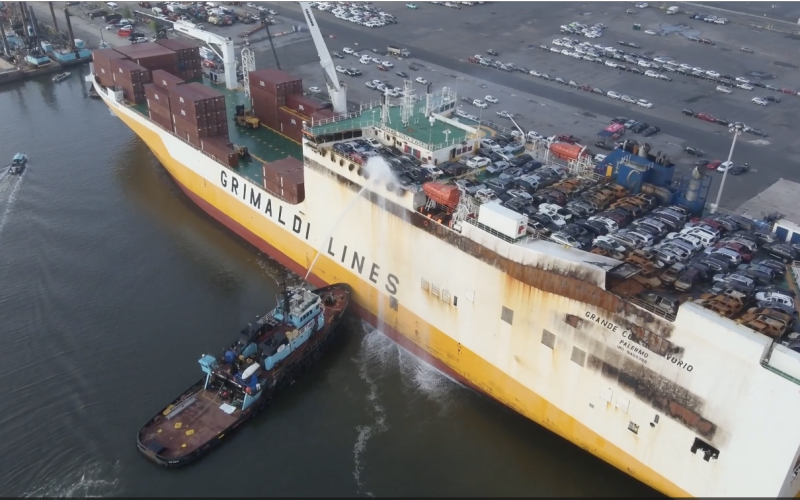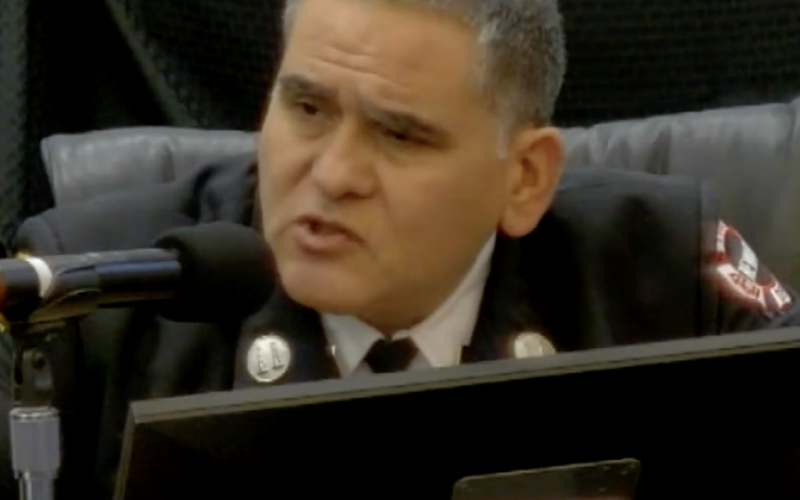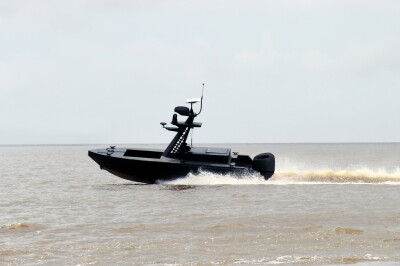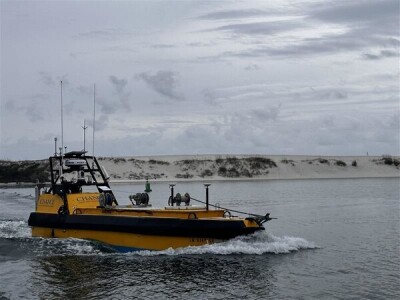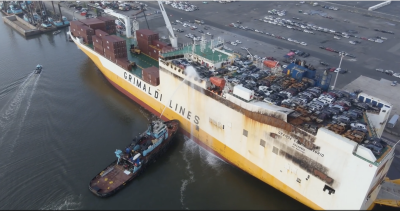Three veteran Newark, N.J., Fire Department officers were feeling their way along a lifeline to retrace their steps out of a burning car deck on a cargo ship at night. Only one made it to a stairwell entrance.
Fire captains Augusto ‘Augie’ Acabou, Wayne ‘Bear’ Brooks Jr. and Oswald Robetto were making their way along the lifeline, a fire hose laid down on the smoke-filled Deck 10 of the 692’x118’ ro/ro container vessel Grande Costa d’Avorio, Rubetto testified Tuesday in the continuing Coast Guard hearing on the fatal fire at Port Newark on July 5, 2023.
“I kept saying, ‘stay on the line, follow the line, keep moving,’” said Robetto. “Visibility was about arm’s-length.”
As they made their way to get off the smoke-filled deck, Brooks said the airpack for his his face mask was running out of air, said Robetto. He held onto Brooks’ jacket as they continued to move.
“Stay on the line,’ Robetto exhorted the other firefighters. But the men became separated, and Robetto struggled to follow the line in the darkness.
“Then I came across a kink in the line. I knew the line wouldn’t lead out the way I remembered,” said Robetto. He called out again to the other two men and got on his hands and knees to examine the kink by flashlight.
“I couldn’t believe it,” said Robetto. Getting up, he managed to find his way to a wall along the car deck packed with lashed vehicles, trying to look for a door to a port side stairwell leading off the deck.
Robetto’s own mask began to vibrate – the alarm warning that his air tank was running out. Robetto called out a mayday distress on his fire department radio, one in a growing cacophony of radio messages.
Finally reaching the stairwell door, Robetto took off his mask and radioed that he was safely out of Deck 10. Climbing up to Deck 12, he asked other firefighters if they had seen Acabou and Brooks. When they said no, Robetto got on the radio again to report them as unaccounted for.
On Deck 12, empty air tanks floated on the deck awash in firefighting water. Below on Deck 10, rescue teams formed to search for Acabou and Brooks. Acabou was found first, trapped upright between vehicles and unresponsive.
“They said that he was stuck and they were going to need resources,” testified Newark Fire battalion Chief Al Maresca. “I probably put two more teams in there to try and get him before the equipment came up.”
The crews were replaced as their air tanks ran low, said Maresca. For lifelines to guide the crews, firefighters used the ship’s own fire hoses on the deck, he said.
Before Acabou was recovered the firefighters had to find some way to get him off the ship. The stairways were too tight to fit the Stokes litter used in medical evacuations, said Maresca. On Deck 12, Maresca looked toward the bow and “saw a big white crane.” He asked Benito LaFauci, chief officer of the Grande Costa d’Avorio, if it could be used to lower Acabou’s body to the pier.
After conferring with ship captain Alessandro Moretti, LaFauci got a crewmember to operate a smaller crane on the starboard side of Deck 12. As Acabou’s evacuation was organized, word came that Newark firefighters would be evacuated and reliever by Elizabeth, N.J., and New York City fire units.
Intermittent communications and smoke hampered the efforts and made “more chaos going on,” Maresca recalled.
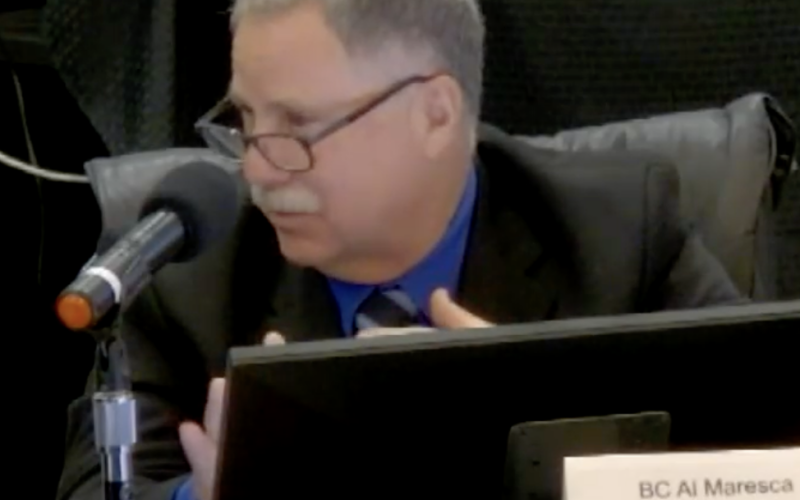
At one point, Maresca asked LaFauci if it was possible to isolate Deck 10 and exhaust smoke using the ship’s ventilation system. Sometime after 10:30 p.m. they started the attempt, believing smoke would discharge out one side of the ship over water.
“When it came on, it went up to the 12th,” said Maresca. “It hit us all at once. It just overwhelmed the stairwell.”
The body of Brooks was recovered later by other rescue teams. Seeing images of the rescue shown at the hearing Tuesday, Maresca said “I didn’t realize how far in (to Deck 10) he was.”
Answering questions from the Coast Guard panel, Maresca noted it was his own first time as a firefighter on a ship. The Newark firefighters had no experience that he knew of with fires on large commercial vessels, and “just a lack of knowledge of ship (fire) fighting,” he said.
